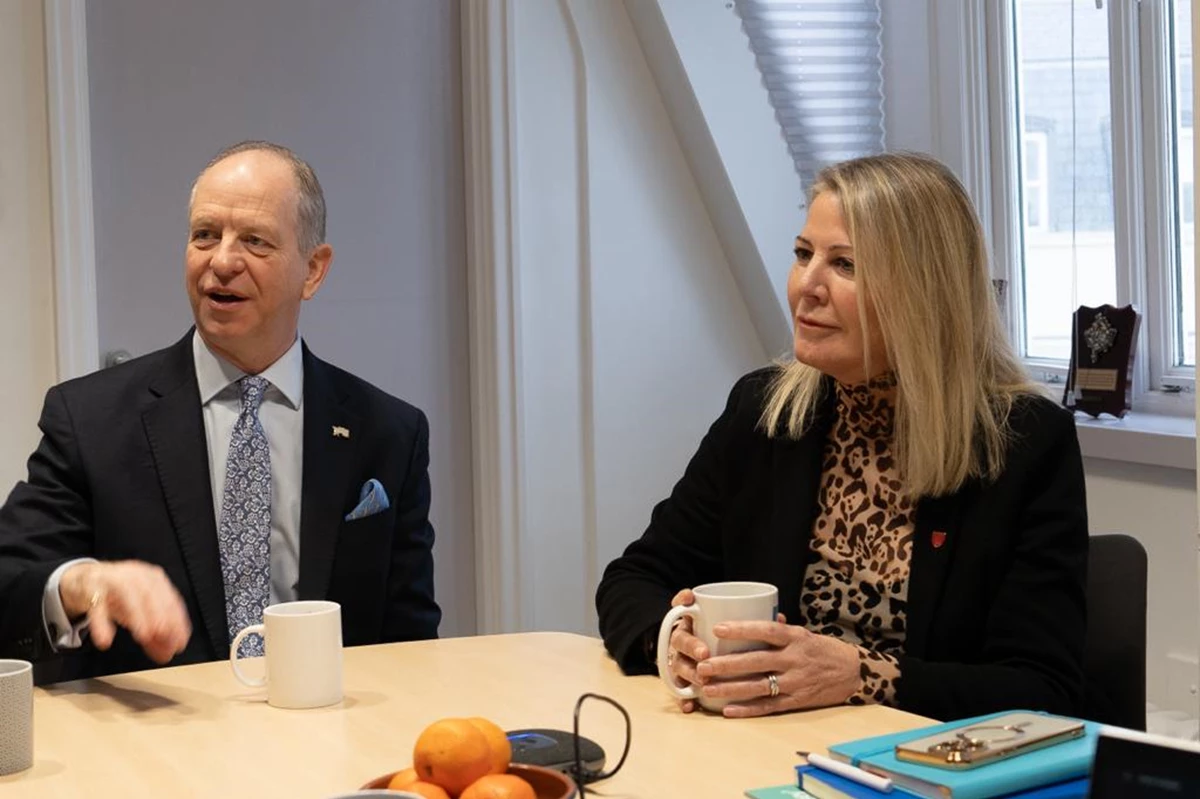Last week, Lieutenant Governor, Vice-Admiral Jerry Kyd, visited Jersey Overseas Aid (JOA) to find out more about how Jersey is tackling malnutrition in Africa.
By Rod McLoughlin JEP Jan ‘2024
THE Island’s approach to helping sustain some of the world’s poorest countries came under the spotlight when the Lieutenant-Governor paid an official visit to the Jersey Overseas Aid Commission.
Vice-Admiral Jerry Kyd met the commission’s chair, Deputy Carolyn Labey, and its professional staff, as well as Sam Thompson from the Royal Jersey Agricultural and Horticultural Society, one of the JOA’s Dairy for Development partners.
The commission set out its approach to providing international development grants for long-term projects, humanitarian and emergency aid in response to crises around the globe, support for local charities working abroad, and the volunteering opportunities it makes available to Islanders in international development.
Among its three key topic areas – Dairy for Development, Conservation Livelihoods and Financial Inclusion – the commission highlighted its dairy development grants.
These grants focus on boosting livelihoods and nutrition by enhancing dairy production techniques to boost milk yields and quality, strengthening value chains, improving animal health and genetics, improving competitiveness of farmers, co-operatives and connected businesses and providing innovative financing, especially to small-scale farmers.
It highlighted the vital role dairy cows play in many developing countries and the special qualities of the Jersey, which produces higher-quality and a greater quantity of milk, relative to size and feed intake, while being more heat tolerant and disease resistant than other breeds.
Last year, Deputy Labey launched the first JOA-funded Dairy for Development project in Zambia, following the signing of a memorandum of understanding between Jersey and the African country in 2022. Developed by the RJAHS and implemented by ADRA Zambia, the project will benefit over 8,100 small-hold farmers and their families – about 40,0000 individuals in all. The commission is also currently funding dairy programmes in Ethiopia, Nepal, Rwanda and Malawi.
During the course of the visit, the Lieutenant-Governor also had the opportunity to talk to Faye Coggins, one of Jersey’s United Nations junior professional officers based in Cox’s Bazar, Bangladesh. Jersey joined the UN programme in 2021, providing young professionals from Jersey an opportunity to embark on a career within the UN system and to contribute at the frontline of a humanitarian emergency, and the JOA currently funds three officers based in Lebanon, Egypt and Bangladesh, with a fourth soon to be deployed to Ukraine.
After the visit, Deputy Labey said that it had provided a great opportunity to share insights into how the JOA’s work was enabling sustainable economic and human development in some of the poorest countries in the world, giving people the opportunity to become independent and to determine their own futures.
The Lieutenant-Governor described the briefing as “very uplifting and encouraging”.
“Their efforts to improve lives across the world, from Africa to the Himalayas, are having demonstrable benefit and will have long-lasting impact in so many of the poorest communities.
‘Jersey should be very proud of what JOA is achieving now and also excited by their enthusiasm and ambition to do even more in the years ahead.
‘What I was really impressed by, was the disciplined strategic approach to their programmes and ensuring that every penny counts at the sharp end,” he said.
(Opens Jersey Overseas Aid website)
